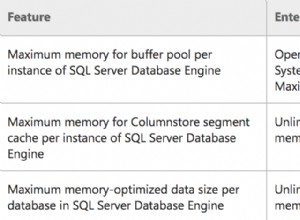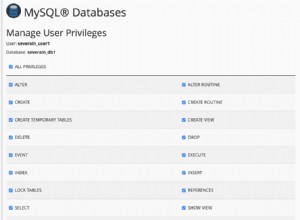Creo que lo siguiente hace lo que quieres:
SELECT *, (To_days(date_expires)-TO_DAYS(NOW())) as dayDiff, COUNT(id) AS change_count
FROM mytable
GROUP BY (case when source_id is null then id else source_id end)
HAVING dayDiff < 4
ORDER BY (case when source_id is null then 1 else 0 end), date_created DESC
Hace un group by por lo que los sourceid NULL no se agruparán. Luego los coloca en último lugar usando la lógica en order by .
No entendí a qué te referías con última ocurrencia. Ahora creo que sí:
SELECT coalesce(s.id, mytable.id) as id,
max(case when s.maxid is not null and s.maxid = myable.id then mytable.name
when s.maxid is null then NULL
else mytable.name
end) as name,
(To_days(date_expires)-TO_DAYS(NOW())) as dayDiff, COUNT(id) AS change_count
FROM mytable left outer join
(select source_id, MAX(id) as maxid
from mytable
where source_id is not null
group by source_id
) s
on mytable.id = s.maxid
GROUP BY (case when source_id is null then id else source_id end)
HAVING dayDiff < 4
ORDER BY (case when source_id is null then 1 else 0 end), date_created DESC
Esto une la información del último registro (basado en la identificación más alta).




